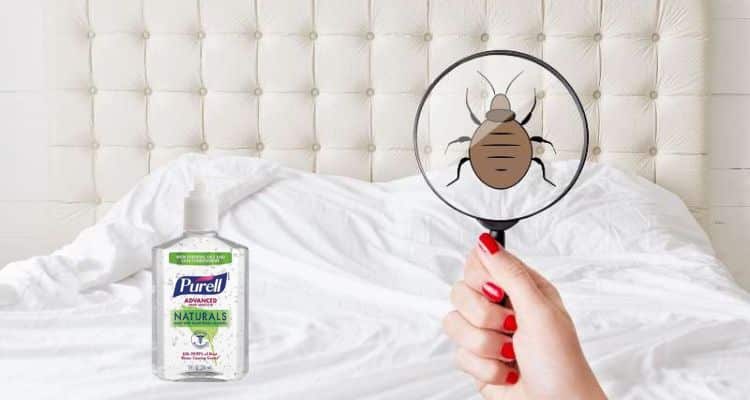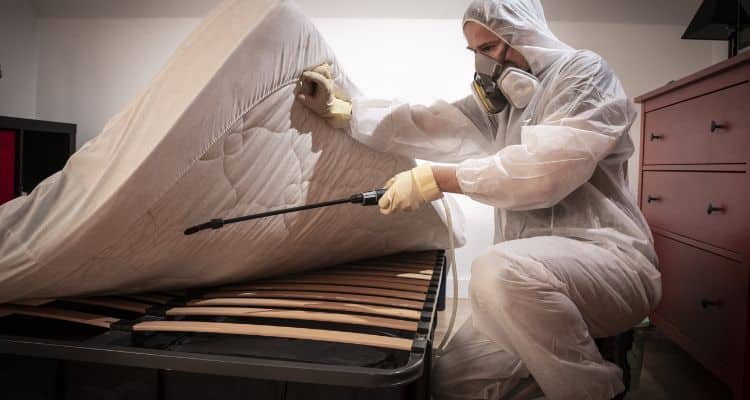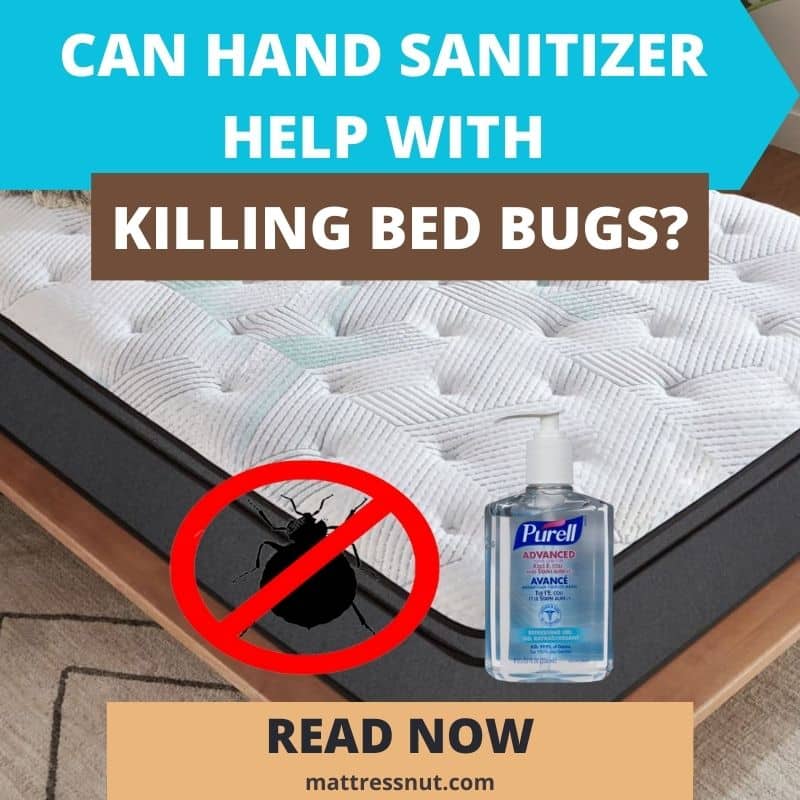Bed bugs are a real issue for many sleepers. They not only disturb sleep but can also cause health issues. People have been using different methods to tackle bed bugs for centuries. This includes temperature regulation of the bed, mattress encasement, using steam through a streamer, desiccants, etc. But have you ever heard about using hand sanitizer to kill bed bugs?
Today, in the article below, we will discuss if it is possible to kill bed bugs using hand sanitizer and if there are any alternative methods along with their safety and precaution methods.
Hand Sanitizer: Composition and Uses
The most common use of hand sanitizer is for cleaning hands. That is because it contains water, alcohol, and other ingredients. It helps kill the germs and bacteria on your hands, promoting good hygiene.

People also use hand sanitizers when there is no soap and water available. Its use is widespread in hospitals, public restrooms, and during flu seasons. It can also be a quick way to disinfect the hands and prevent illness.
Surprisingly, some people even consider using hand sanitizers to kill bed bugs. These tiny insects are capable of infesting the homes and even biting humans. The idea is to use hand sanitizer to kill bed bugs. However, it still needs further evidence to be a proven or recommended method for killing bed bugs.
Bed bugs hide in many places, making it hard to reach them all. Also, some bed bugs may be resistant to hand sanitizer. So, while it’s good for hand hygiene, it’s not a reliable way to get rid of bed bugs.
Can Hand Sanitizer Kill Bed Bugs?
Claims about using hand sanitizers as a bed bug treatment are circulating nowadays, but they are mainly anecdotal and lack scientific support. Some users suggest that their high alcohol content can kill bed bugs due to direct contact with these bugs. So, conducting more scientific studies or experiments is essential for better results.
There are still many challenges in using hand sanitizers as a bed bug treatment. These bugs can hide in tiny cracks and crevices, making it tough for hand sanitizer to reach them all. Also, bed bug eggs and nymphs may be less susceptible to alcohol-based solutions. There’s also the issue of potential resistance, as some bed bug populations have gotten used to surviving the exposure to such chemicals.
In short, hand sanitizer is mostly useful for hand hygiene, so don’t consider it a reliable or proven method for eliminating bed bug infestations. We recommend considering professional pest control services or other targeted treatments as more effective solutions for these persistent pests.
The Science Behind Hand Sanitizer’s Effects on Bed Bugs
Hand sanitizer may affect bed bugs by dehydrating them or damaging their exoskeletons when applied directly. The high alcohol content in Sanitizer may kill bed bugs upon contact, but it is not scientifically proven or recommended.
Hand sanitizer doesn’t address the root causes of bed bug infestations. It only targets individual bed bugs but doesn’t eliminate the entire infestation. Addressing root causes involves finding and treating hiding spots, preventing re-infestation, and seeking professional help.
There are potential risks in using hand sanitizer for bed bugs. It’s not a recommended method, and overuse of alcohol-based products can harm humans. Also, it may not reach all bed bugs or their eggs, leading to incomplete treatment and potential resistance development. Consulting a pest control expert is safer and more effective.
Alternatives to Hand Sanitizer for Bed Bug Control
There are many other methods to control bed bugs instead of using hand sanitizers as a bed bug control. These include heat treatment, pesticides, vacuuming, and more.
Heat treatment means rising the temperature in infested areas to lethal levels for bed bugs, but it can be costly. Next, pesticides can be effective but may have health and environmental concerns. Lastly, vacuuming helps reduce bed bug populations but may not eliminate them.

We recommend professional pest control services for addressing bed bug infestations because they bring expertise, equipment, and safer chemicals for effective eradication, ensuring thorough treatment and preventing re-infestation. Consulting experts is often the most reliable option.
Safety Considerations and Precautions
When considering hand sanitizer for bed bug control, safety precautions are vital. Ensure good ventilation in the treated area to minimize inhaling fumes. Wear protective gear like gloves, goggles, and a mask when applying Sanitizer.
Use hand sanitizer directly to bed bugs if you choose this method. Be cautious of explosive hazards, and keep Sanitizer away from open flames. Avoid excessive use in one area, as it may damage surfaces or fabrics.
Protecting pets, children, and sensitive individuals is crucial. Keep them away from treated areas until its safe. Bed bug treatments should prioritize safety, and alternative methods or professional pest control services may be safer for those with sensitivities or young children.
We highly recommend considering all safety and precautionary methods when dealing with bed bugs. Otherwise, it can lead to a life-threatening incident for the sleepers. Chemicals, pesticides, or other DIY methods can have adverse health effects. That is why we always consider hiring professionals or using other certified health and safety precaution methods for the best solutions.
Conclusion
Most health and safety experts or even regular users do not consider hand sanitizer a reliable method to eliminate bed bug infestations. Although it may briefly affect bed bugs in direct contact, it can not be a practical method for eradication. It usually requires targeted treatments like professional pest control, heat treatments, and insecticides for dealing with bed bugs.
Moreover, understanding their biology and hiding spots is also important to prevent or eliminate them. It would be best to rely on something other than hand sanitizers as they may disappoint you since they can’t effectively combat these pests. Lastly, consult pest control professionals or use a comprehensive strategy for successfully removing bed bugs.

